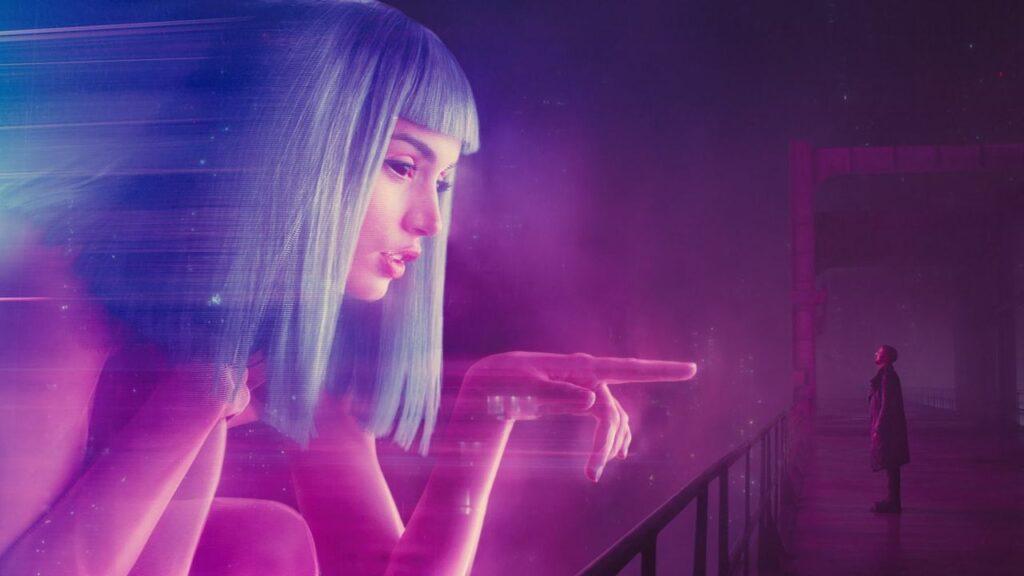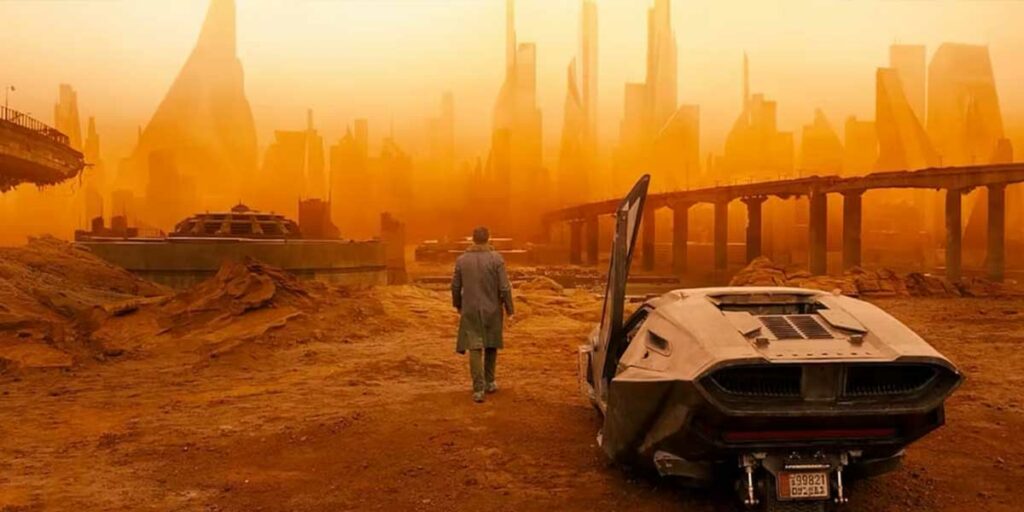Blade Runner 2049 is not only a terrific sequel to a classic film, but it also more than stands on its own as a towering sci-fi achievement.
While 2017’s Blade Runner 2049 makes some clear references and homages to the 1982 Ridley Scott original, to say it is an unnecessary or lesser sequel would be faulty. In fact, Denis Villeneuve’s unfortunate box office bomb should be considered a classic in its own right. The sci-fi noir extends the mythology of the world and examines timely, universal themes regarding humanity, environmental concerns, and one’s purpose in life. Villeneuve’s worldbuilding and directing prowess, Roger Deakins’ award-winning cinematography and the committed performances all blend together into one of the most powerful, thought-provoking films in the genre.
Any discussion of Blade Runner 2049 needs to begin with the talent behind the camera. Villeneuve, who directed such films as Prisoners, Arrival, and Dune, took a leap forward with 2049. His shot composition and sense of pacing deserve special praise. The film contains many memorable shots, ones that not only look beautiful but also move the story forward. Despite being nearly three hours long, the movie moves at a thoughtful yet exciting pace. Villeneuve weaves I important plot details in an interesting way that never feels simply expository.
Ryan Gosling’s K tells memories from his childhood early in the film, setting up important moments later. But his dialogue and character moments feel natural and not like they are simply setting up the next plot point. This is not an action movie (though it does contain more action than its predecessor), so some may find it long and drawn out. But those invested in the story will find its dialogue memorable, its exciting moments earned, and its philosophical ponderings relevant. All these traits go back to Villeneuve’s ability (along with screenwriters Hampton Fancher and Michael Green) to tell an intriguing story in a visually unique way.
A rather large portion of the credit for making 2049 visually unique belongs to legendary cinematographer Roger Deakins. Deakins’ credits include films like No Country for Old Men and 1917. This movie, however, is perhaps his defining achievement. His use of color for separate locations throughout the story, aside being stunning to behold, helps easily split the narrative up into different sections, a certain mood identifying each section. His work alongside the special effects department will leave audience members saying aloud, “How did they do that?” Gosling’s K walking through the deserted Las Vegas landscape or interacting with a life size version of his holographic girlfriend Joi (Ana de Armas) are poster-worthy images that stick in the mind long after the credits roll.

Speaking of Gosling and de Armas, both give knockout performances here, as does everyone else involved. A good science fiction films needs committed actors, and Blade Runner 2049 gives its audience plenty of noteworthy performances. Ryan Gosling gives one of the best performances of his career as K, the replicant blade runner at the center of the film. As a blade runner, K is assigned by the Los Angeles Police Department to hunt down and kill (or “retire”) other replicants (another term for androids, in the world of the movie). Gosling plays K as quite stoic and emotionless, though he knows the right moments to let a little bit of emotion in under the surface, as the film revolves partly around K trying to discover who he really is and if he is a part of something bigger than himself.
De Armas, despite little screentime, leaves a big impact as Joi. The essential “what does it mean to be human” question lies at the center of both performances. Harrison Ford returns as former Blade Runner Rick Deckard, and fully commits to where this sequel takes his iconic character from the first film. Jared Leto plays the film’s antagonist, the CEO of a corporation that manufactures replicants, and Villeneuve gives him plenty of scenery to chew up as well. Sylvia Hokes, Robin Wright, and Dave Bautista round out the stacked cast.
Even with that stacked cast and a talented director, a sci-fi film can never fully work unless it contains ideas worth exploring. The science fiction genre thrives on the richness of its themes, and Blade Runner 2049 succeeds in both following up on the themes of the original and adding its own questions for audiences to contemplate. What is real? Do human beings have a soul? What were we placed on Earth to do? How can an oppressed class begin to fight back? How do science and religion interrelate? This film asks these questions and much more. It uses classic literary symbols, Biblical allusions, and other devices to question the audience without supplying definitive answers.
Perhaps it should not be a surprise that Blade Runner 2049 bombed at the box office. It is a three-hour journey into the subconscious, examining the nature of reality and humanity. It favors intense dialogue over explosions and brawling, and leaves audiences with more questions than answers. But the movie also proves that a great sci-fi film does not need flashy action, laser guns, or scary aliens to be memorable. Good sci-fi needs only to present an idea, to give the audience a chance to investigate its own views on deeper philosophical, scientific issues. Blade Runner 2049, in that regard, should be viewed as not only a worthy sequel, but also as one of the best movies of the 2010s.
Blade Runner 2049 is now available to watch on digital and on demand. Find out why Blade Runner 2049 failed to reach audiences!

